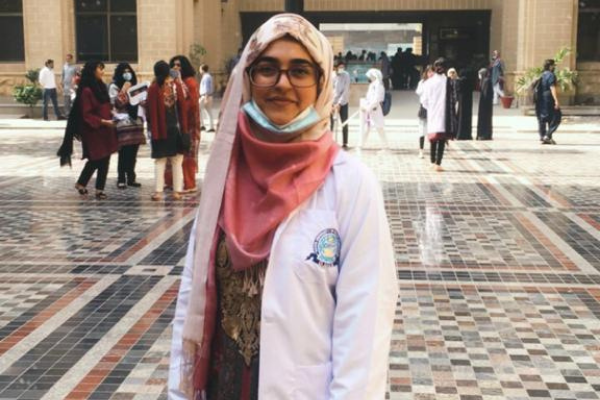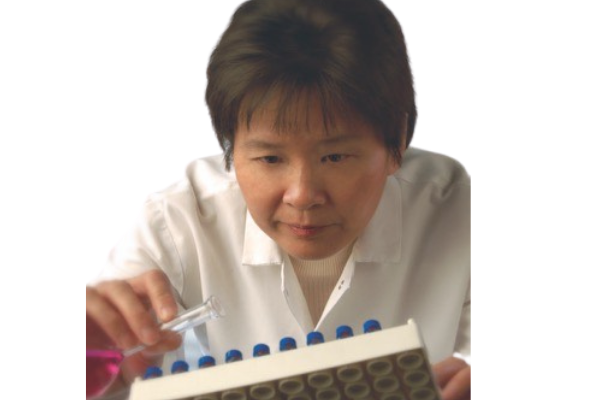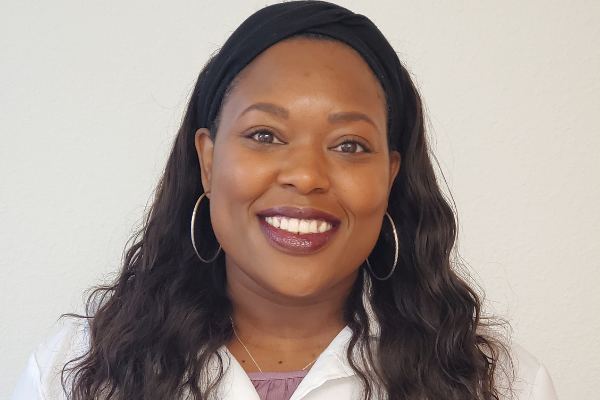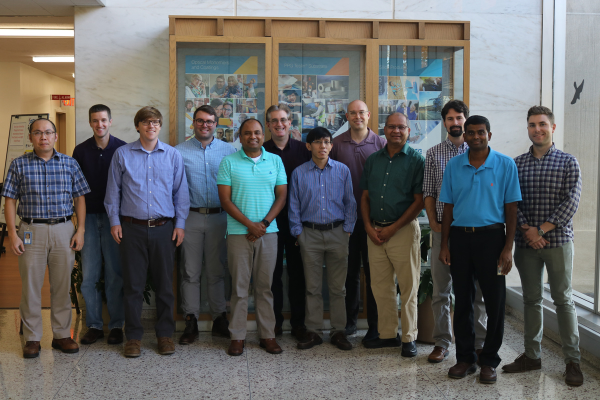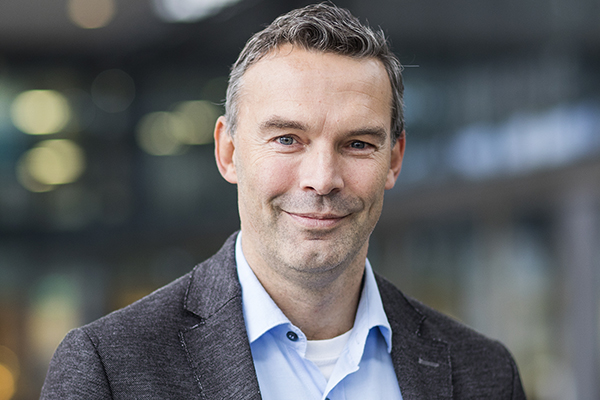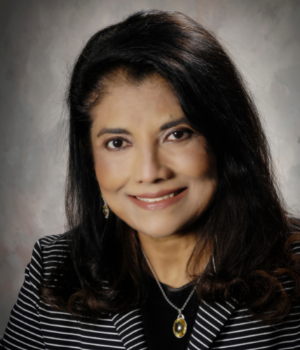
The “magic” of chemistry struck Mahfuza Ali, PhD, a corporate scientist at the 3M Materials Resource Division in St. Paul, MN. While in secondary school, she watched her chemistry teacher combine two chemicals to produce something new. “It was like magic happening in front of my eyes,” she tells us. “I kept asking him, ‘How did this happen? Can you show me?’ That’s how this all started.”
“I was always interested in science even at 4 or 5 years old, I was always curious.”
Today, Ali holds more than 60 issued and pending patents that cover a large variety of product applications in multiple markets and is widely recognized in the global 3M technical community for technology and product development contributions across many business units.
She invented and developed a novel Quaternary Ammonium Materials Technology Platform that has generated several highly successful commercialized products for 3M, including antistatic polarizer films used for laptops and TVs, ink-receptive films used for printing durable, brighter images and antimicrobial coatings.
For her efforts, she has received many prestigious 3M Corporate Honors, and recently added additional recognition as the top industrial chemist as recognized by the American Chemical Society with its 2020 Industrial Chemistry Award. “It’s been 10 years since a 3M scientist won the ACS Industrial award,” she says. “I’m very happy about this recognition from the world’s largest professional chemical and engineering society.”
Giving Back
Ali grew up in Dhaka, Bangladesh, which she describes as having a “large population but limited opportunities.” Nevertheless, she studied chemistry, science and math in secondary school and came to the U.S. on a scholarship to finish her PhD in Organic Chemistry at the University of Kentucky. She did her postdoctoral work at the University of Colorado, where she met her husband. They later both joined 3M in 1984.
“I’ve always wanted to make something new, new products, new things, so 3M was the perfect fit,” she says.
Ali, one of three women at the company’s senior scientific level, recognizes the difficulty young people face in choosing to pursue the sciences as a career. To that end, she teaches enrichment science classes at a local elementary school and instructs and mentors in 3M’s Science Training Encouragement Program (STEP).
3M’s STEP program is offered each year to 35 students from inner city schools in St. Paul for weekly courses taught by 3M scientists in science, engineering, and computer science. For the summer, many are placed into internships and paired with both a 3M scientist-trainer and a mentor. Ali’s courses focus on the practical side of science, showing the young students how science impacts their daily lives with hands-on experiments. Many of her former students have gone on to study science and have stayed in touch.
Additionally, Ali has been a steadfast champion of science education and diversity by mentoring many students and some of the nation’s most talented young scientists through the “3M Young Scientist Challenge.” Ali has volunteered her personal time and talent to mentor one of the 10 national finalists as the student develops his or her idea from a concept into an actual prototype. Her mentee received the nation’s Top Young Scientist Award for the year 2020.
She also serves on the board of directors of the prestigious Schubert Club organization as an executive member of the Schubert Club Education Committee and as a volunteer council member of the Salon Se Leve Musical Organization.
Raising the Bar
Ali has been recognized for developing several new-to-the-world material technologies and their utility in broad range of applications: antistatic treatments, antimicrobial formulations, in-receptive thermoplastic coatings, paint blocking adhesives, adhesion promoting binders and sustainable manufacturing routes and solvent free options that meet challenging market needs. Ali has also developed a number of technologies including specialty thermoplastic and pressure sensitive adhesive polymers, quaternary monomers/polymers, ink-receptive polymers, and surface modification.
“I’ve been proud to develop these products for the world, knowing they ease people’s lives,” she says. “But I don’t have a favorite; every product I develop and I’m working on now is important to me.”
She’s also very appreciative of the honors and awards she’s received along the way, in particular the ACS award and being a Carlton Society 2020 Inductee at 3M. “You never dream of getting those two big awards in your career. All I can say is that I love what I do and pour my soul into each task.”
She describes the Carlton Award as “the unofficial 3M Nobel Prize.”
“It means you’ve made a significant contribution to 3M through your R&D work,” she explains. “They say here it’s easier to get into the baseball Hall of Fame than win the Carlton award.”
But there is something she is most proud of: raising her three daughters (now adults). All are accomplished musicians and Ivy League graduates. “It wasn’t easy to balance a demanding career and raise a family, so I’m very proud of both,” she says.
New Challenges
Like most of us, Ali’s life has been dealing with COVID-19 for the past year, but unlike many of us, she’s continued to go to work looking for ways to mitigate the virus. “We have many chemicals, especially polymers, that we are developing so we can make a product to prevent the spread of SARS-CoV-2 infection and COVID-19,” she says.
In particular, restoring passenger confidence in air travel is the immediate challenge facing airlines during this pandemic. 3M has been approached by the aerospace and automobile industries for a technology that could be utilized to develop products that help them disinfect the interior of aircrafts and automobiles. One solution is a technology developed by Ali which she describes as being in the invention-to-product stage.
“This is an important project because these viruses aren’t going away, and we’re going to have to work very hard to stay ahead of them.”
Copyright 2021 American Chemical Society (All Rights Reserved)

